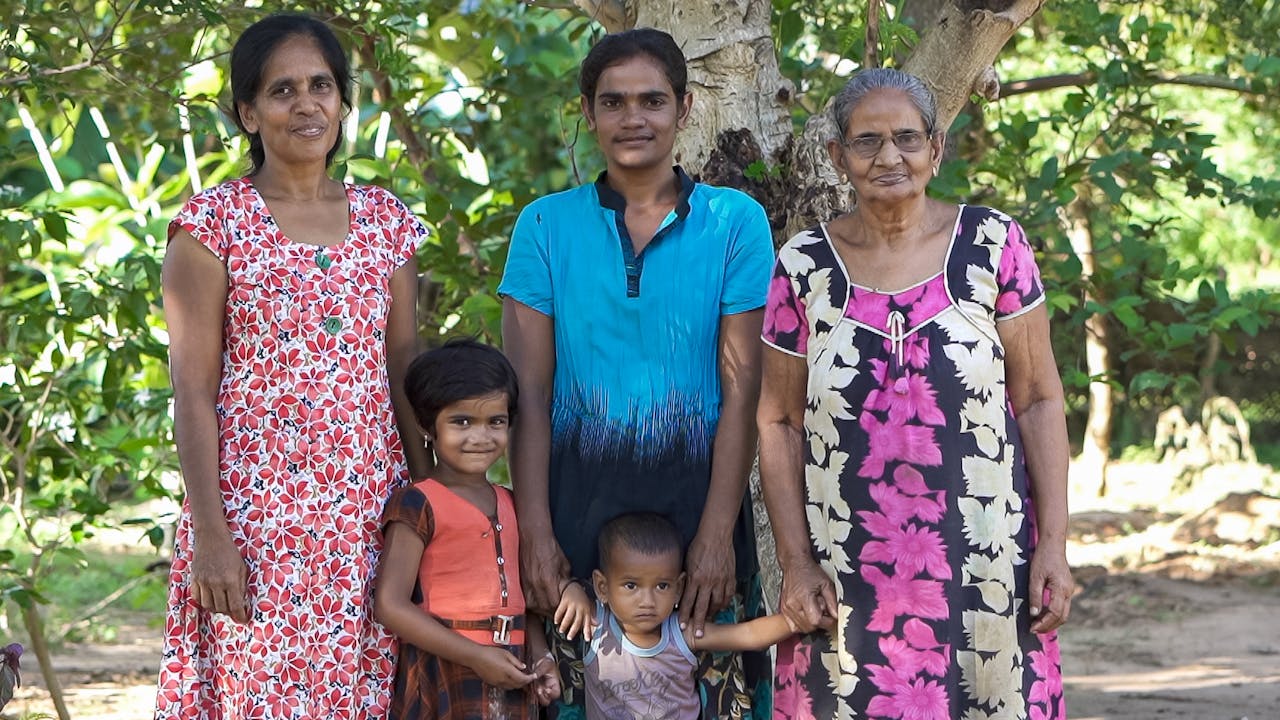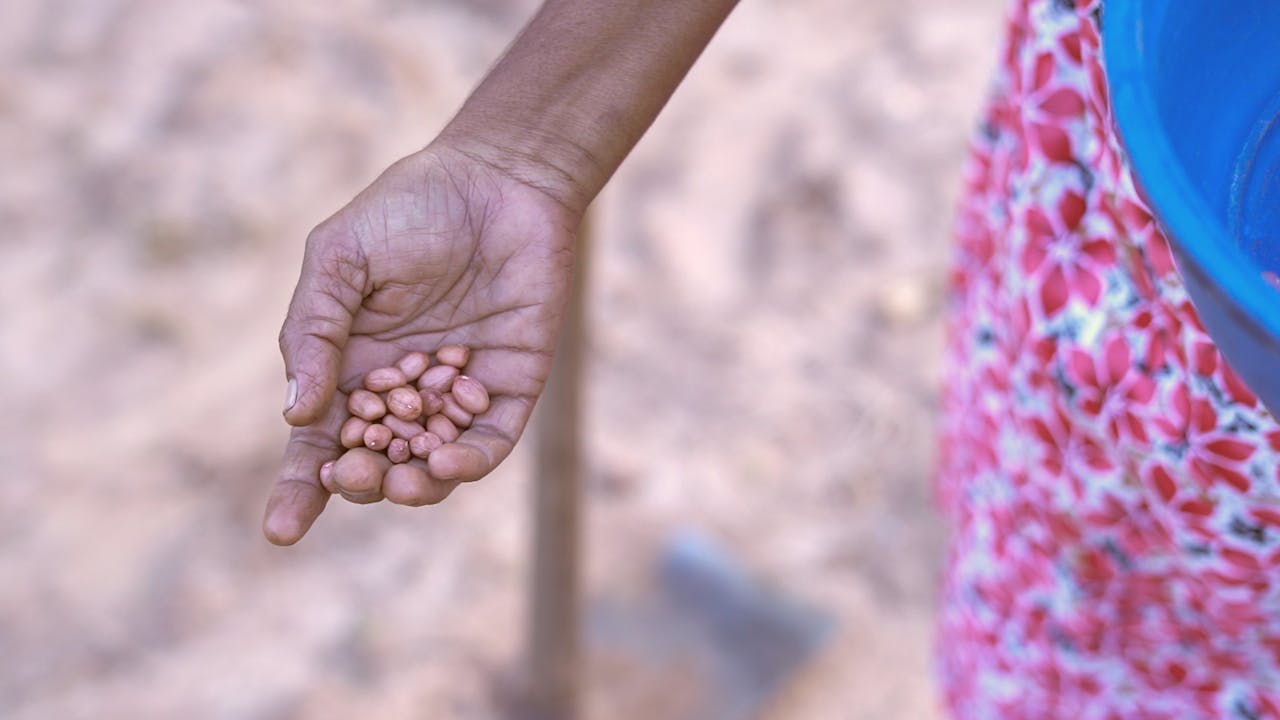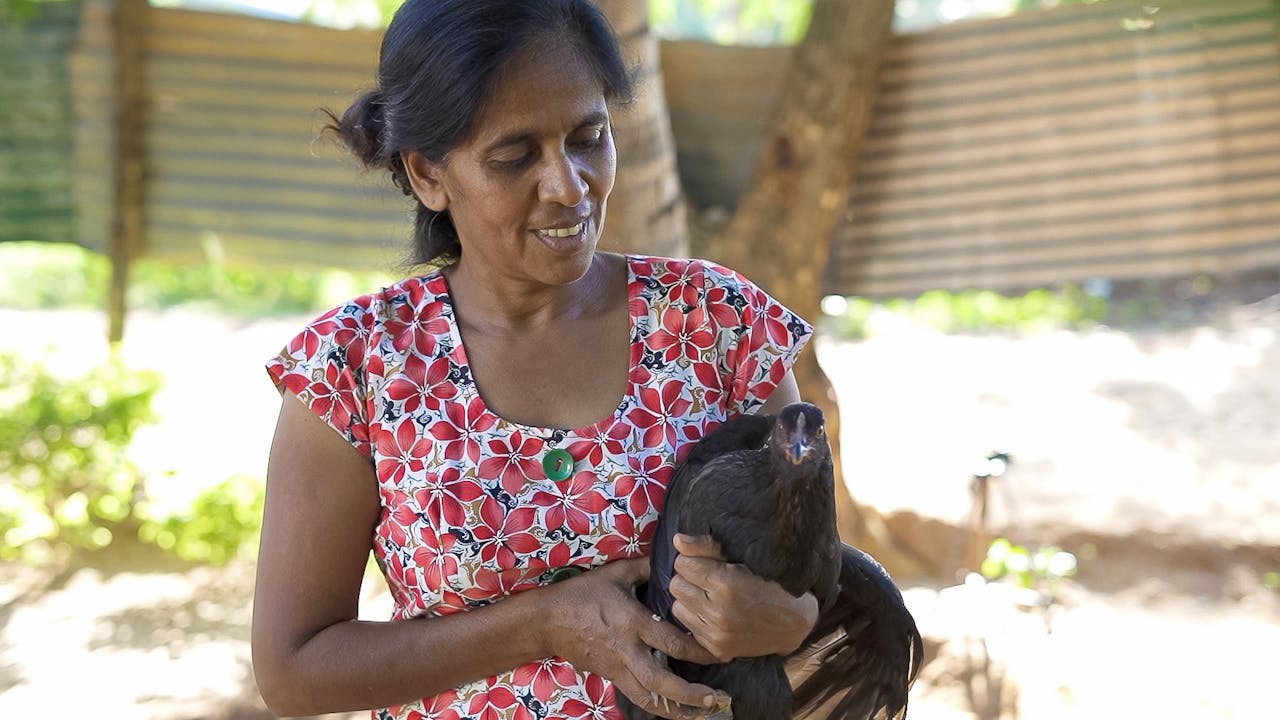My family was poor and broken after the civil war in Sri Lanka but I could do nothing about it. So when I had an opportunity to improve our lives I grabbed it.
I grew up in poverty. When I was a baby we lived in Colombo. My father supported the family through daily wage labour. He died suddenly in an accident. I was only a year old at the time.
Our mother raised us with difficulty. She had five children to look after, four daughters and one son. I got married at the age of fifteen. After my marriage we were still living in poverty, but our life gradually improved; we bought land in Kepapilavu Mullaitivu, in the Northern Province of Sri Lanka and built a house.
It was during this time that the war was happening. We were forced to move in 2009. We moved from one place to another, and in Mullivaikkal we were relocated to a military-controlled area. They took us to the Cheddikulam refugee camp. Life in the refugee camp was hard as there was a shortage of food and water. We struggled a lot with the children for nearly seven to eight years.
After years of struggle, in 2016 our land was finally released for resettlement.
We were given our land, but I did not have the savings to do anything with it because we had lost everything during the war - I had lost my home, and my husband was no longer with us. I didn’t have the money to send my five children to school.
I was unable to provide my family with even basic necessities.

Four of my daughters were married when they were young. One of my them was injured from a shell attack during the war. She then fell into depression and is to this day affected by loud sounds. She found employment in a garment factory, but she couldn’t bear the sounds of the machines. She couldn’t continue to work there.
The only opportunity open to me was some daily wage labour. As a woman and head of a household with no external support, I was unable to take any steps to provide for my family with even basic necessities.

Our family lived in poverty even after we were resettled.
© ILO/OIT Abdul Halik AzeezThen, we were lucky. A cooperative society and a project of the International Labour Organization (ILO) learnt about our situation and invited me to join a livelihood programme on groundnut farming.
They said if I participated in the programme, they would give me groundnut seeds that I could use to start cultivation on half an acre of land. They said they would give me 20 kgs of groundnut seeds for farming and after the harvest, I would need to return the same amount to them. I was happy to do this.
Through the project they also taught us how to cultivate the land and grow crops. I practiced what I learnt.
At first, I had to borrow money even for the wire to build a fence on my land. Despite all that debt I managed to cultivate 20 kgs of groundnut seeds and reaped the benefits from it.
Today I have bought wire with my money, I own the fence, and I have expanded the land to one acre. I was able to return the 20 kg of groundnuts they lent me. After that, they even built an agro-well for me.
The new agro-well has allowed me to cultivate groundnuts all year round. We have grown step by step.

Growing groundnuts has turned my life around.
© ILO/OIT Abdul Halik AzeezWhen the war broke out we moved to the camps without even proper clothes to wear. Even after the conflict we were stuck at home with no income.
So, when we were shown a way to improve our situation, we grabbed the opportunity. I believe by making efforts, we will progress forward.
It’s our own business, we put our heart and energy into it.

Cultivating is not easy, it's hard work under the unbearable sun. But it’s our own business, this land is ours and we are not working under someone else. We will put our heart and energy into it.

I have a lot of plans for the future; rearing chickens, fixing a water pump, and opening a small shop for my daughter.
© ILO/OIT Abdul Halik AzeezNow I plan to repair a water pump, which is the only thing I don't have at the moment. And if our situation improves further, I would like to rear chickens as a livelihood. I also hope to set up a small shop for my youngest daughter. And it’s through my groundnut farming business that I will achieve these goals.
Note: This interview was conducted before the current economic crisis in Sri Lanka.
